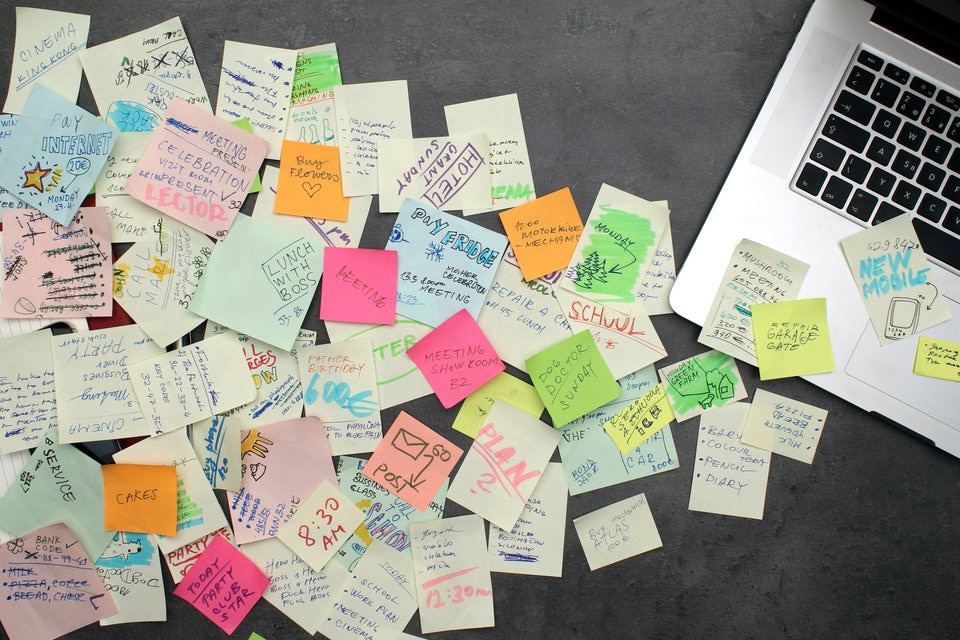My Never-Ending College Journey


Hi there! I’m Emily, a former Accelerated Pathways student currently working on the Marketing team here at Pearson. (Which is what my degree was in, so bonus points!) I’m 27, and I just finished my degree last year.
You might be thinking, “27 seems a little late to be finishing your degree, did you take a gap year? Or five?”
See, when I started college, I thought I knew what I wanted to do. But shortly thereafter, my life was turned upside down, derailing all my well-intentioned plans.
So yes, it took me 8 years to finish my degree. And you know what? I’m okay with that.
Sure I would have loved to finish sooner—having your degree hanging over your head for 8 years is a bit exhausting—but I wouldn’t change those 8 years if I had the chance.
Let me tell you why…
To start, I may have bitten off more than I could chew.
You see, my life was pretty busy in 2009, the year I started my college journey. I grew up on a horse farm, and at that time I was managing our horse boarding operation with anywhere from 6-9 horses. (If you’re not familiar with horses, let’s just say, they’re a lot of work.) I was also starting a small, direct-sell business with a supplement company because I was interested in nutrition. Did I mention I had just started studying for a certificate in nutritional counseling, too? All while getting ready to start Accelerated Pathways in the fall.
Confession: I’m a bit of an overachiever.
So that’s where my life stood when I enrolled in Accelerated Pathways. Life was busy, but I was doing things I enjoyed, so it wasn’t so bad.
Then things got interesting.
6 months after starting college, my family went through a crisis that completely derailed me. It was the kind of life event that made me question everything I thought I knew about myself and my family.
By that time, I had earned 9 credits, was still running our farm, and I was in the middle of building my nutrition business. But now I couldn’t work myself out of a cardboard box with all four sides down, let alone try to study for Western Civilization 2.
I was depressed, and I started having debilitating anxiety and panic attacks. I had no motivation to do school or participate in anything else that interested me, like my business. My energy was completely diverted to dealing with my family situation and trying to find some semblance of normalcy in my life (unsuccessfully most of the time).
I realized something in my life had to give, and school was one of the only things I could easily set aside.
So I took some time off. That was a really hard decision.
For the next 2-3 years, I watched my friends work through their degrees at local colleges, graduate, and get jobs. Meanwhile I felt like I was trying to run backwards through molasses while tied to a bungee cord.
At this point, I was 22 and still struggling to get any traction with my coursework. I had been starting and stopping my college work for the last couple of years. I’d get through one or two courses, then come back to a standstill for a couple months.
I was questioning what I really wanted to do with my life. What degree did I want? What career should I pursue? Who was I? (Yeah, it got pretty existential.) I thought I knew the answers to these questions, but as I took the time to pursue counseling and do some serious self-reflection, my old answers just didn’t cut it.
I changed my major from Communications to Liberal Studies, trying to find something to motivate me toward finishing. I tried working on some new small business ideas, and I took an internship at a web development company.
Basically, I spent my “gap months” exploring as many things that peaked my interest—or that I thought might peak my interest—as I could. I was trying to remember who I was and find something I wanted to do with my life, all while slowly completing college credit. Middle-of-rush-hour-traffic slowly.
Coming out of the fog.
Four years after I began college, I saw the light at the end of the tunnel, and fortunately, it wasn’t an oncoming train. I had been working with a counselor on and off for those 4 years and felt like I was conquering my depression. This meant I had more brain space and, with much introspection, was slowly getting an idea of the career path I wanted to pursue.
I started to see the connections between all those random business ideas I’d tried and internships I’d done over the last few years. I saw the connections between my interests and could finally distill from that what I actually wanted to do with my life.
Watch out, here I come.
That’s when I really started gaining traction on my degree. (5 years into the process… but who’s counting?) I started picking up speed, earning more credit in less time than I ever had before. After a couple months of intense research, I decided I wanted to change my major (again), this time to Marketing.
After what felt like an eternity, I was really getting excited about school and the possibilities life held for me.
In 2014, I decided to go to the first Accelerated Pathways National Student Conference in Texas and was blown away by the students there.
Not only did I meet other students like me who had big goals and dreams, I got to practice pitching a business idea to several of the executives at Accelerated Pathways. After the convention, I got even more involved in student community. It was an amazing experience to meet other students passionate about leadership and living out their gifts, learn in-person from our professor, and work on group projects that helped us put what we’d learned into practice.
All of these things combined to give me the boost I needed to push harder to finish my degree.
As that summer rolled around, I had close to 69 credits and started seriously looking for jobs. I knew I wanted to start my own business, but my leadership studies showed me I still had some skills to learn if I wanted to be successful in entrepreneurship. I needed real, hands-on business experience first. So I started looking specifically for entry-level jobs and internships in marketing that would fill the gaps in my knowledge.
And that’s when the folks at Pearson reached out about a job with the Accelerated Pathways program. (Happy dance!)
While the position wasn’t exactly what I was looking for, it was a starting point. It was a chance to get some experience, gain some marketable skills, and see how a company operated. And the best part? They would help me cover my expenses for the rest of my degree.
It was a no-brainer. I accepted the job and moved to Texas in the span of a week. From then it was like I was on fire. I put my nose to the textbook, if you will, and knocked out 59 credits in 18 months while working 35-40 hours a week.
No, I didn’t have a social life. But, after 8 long years, I finished.
So here we are, back where we started.
Thanks to the experience I’ve gained and the connections I built over the last 8 years, I was able to transition to the Marketing team here at Pearson after I graduated. Which means now I get to do what I love every day, with some pretty awesome people to boot.
And that’s really why I wouldn’t change how long it took me to finish my degree.
While taking 8 years to finish a degree isn’t the best path for all students, sometimes life just happens. Things outside your control will change your best laid plans. That can be frustrating and discouraging, but I’ve learned those life-disrupting events are the same ones that help you figure out who you are and make you into the person you want to be.
So if I could go back in time and avoid the pain and depression caused by my family crises, I wouldn’t. I wouldn't run from from those trying times. I wouldn’t run from the questions about myself and my future. I would embrace them.
Even if that means taking a little longer than everyone else to finish my degree.
Enjoyed this post? You may also enjoy Why I Walked Away From College… And Why I Went Back.
read more
